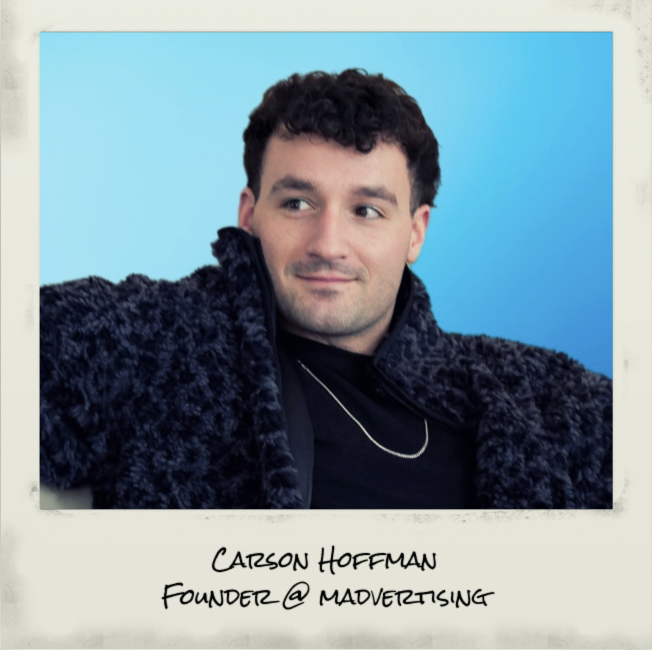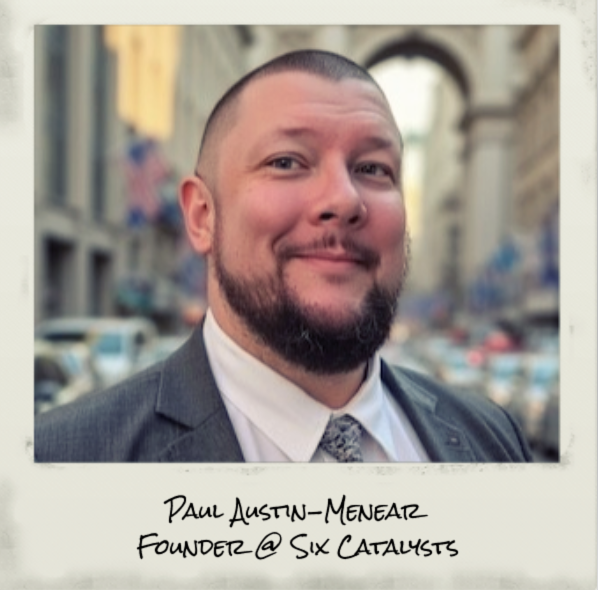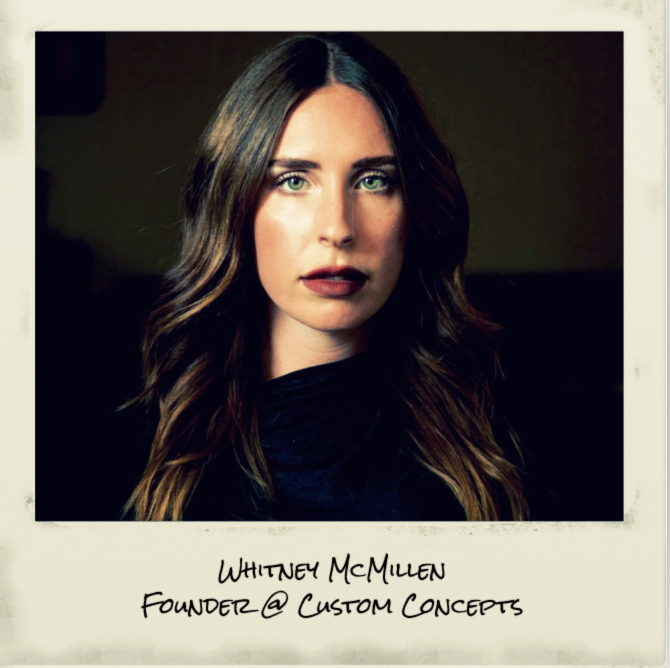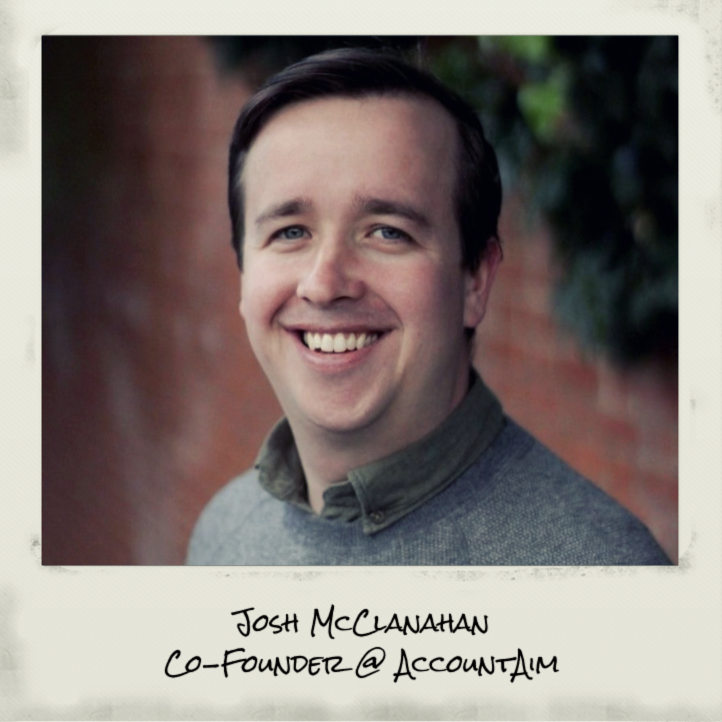
Underestimated features real founders building real businesses. We're proud to share the stories most people overlook.

The Ad Brain Built in a Psychology Class
The seeds of an entrepreneurial spirit often sprout in the most unexpected places, yet for Carson Hoffman, they were sown right at home. Raised by Marine helicopter pilots, discipline coursed through his upbringing like a relentless march, yet Carson found his own cadence—not in military precision but in the creative chaos of entrepreneurship. At just 23, his path is a compelling testament to honoring one's roots while daring to pave new roads.
Carson's story doesn't fit neatly into the mold of a traditional entrepreneur, a point he emphasizes with a reflective humility. Growing up under the tutelage of two disciplined Marine parents and finding an early mentor in his engineer grandfather, Carson felt the entrepreneurial call early in life. From lemonade stands to selling anything he couldn't find use for, the hustle was always in his veins. It wasn't so much about commerce as it was about craving something more; a lifestyle defying convention, fueled by creativity and strategy.

Rediscovering the Thrill of Entrepreneurship
Building dreams with your bare hands and watching them grow is a passion for many. Some journey away, only to be drawn back by the allure of their origins. Paul Austin-Menear is one such individual, an operator turned founder who found his way back to entrepreneurship after a decade at the helm of a global brand.
Paul’s story begins in his early teens with a paper route, navigating rain, snow, and aggressive dogs in rural Ontario. “I made absolutely no money at it,” he recalls, a humorous early venture that nevertheless planted the seeds for a work ethic and persistence that he would carry into adulthood. Similar lessons followed during his time at McDonald's, where he learned the art of operations at one of the world's most streamlined businesses. Despite the lack of monetary reward, these experiences became the groundwork for a life led by curiosity and grit.

From Sales Star to Solopreneur
Whitney McMillen always knew she wanted more. Her journey to becoming a flourishing branding solopreneur was less about following a clear-cut path and more about responding to the ebb and flow of life's opportunities. As she navigates this vibrant chapter of her life, Whitney reflects on how her early obsession with making money morphed into a fulfilling career she couldn't have anticipated.
Growing up, Whitney was surrounded by the tangible rewards of hard work. She would meticulously rake leaves, clean grout, and even run a lemonade stand for a mere five cents a cup. For her, each crisp $20 bill was a token of achievement and independence. While entrepreneurship wasn't something her family directly showed her, her ambition to earn and her resourcefulness were innate.

The Banker Who Wanted to Build
Josh McClanahan didn’t have the typical lemonade stand beginning that you often hear about with many entrepreneurs. For him, the inspiration struck a little later in life, amidst the suited hustle of investment banking. From observing across boardroom tables, he watched founders in the tech world breathe life into their ventures, the alluring challenge sparkling in their eyes. He knew then that he wanted to flip the script, stepping out from the finance fog and into the creator spotlight.

He Turned His Favorite Dessert Into a Brand
Artie Januario didn’t plan to become a baker. He didn’t even plan to become a founder. But after getting laid off from his tech job in 2023, he decided to bet on something he had been quietly perfecting for years.
A three-layer dessert called millionaire shortbread.
“It’s shortbread, caramel, chocolate. Sounds simple. But when it’s done right, it’s magic,” he says.
That one treat became the foundation for Artie Bars, the brand he co-founded with his wife Nicole. Today, it’s a growing e-commerce business with a cult following, dozens of flavors, a feature in the Wall Street Journal, and a mission to turn a European classic into America’s next favorite dessert.

He Built the Pediatric Practice He Wished Existed.
Dr. Trey Williams didn’t plan to become a founder. He was a pediatrician. A former Air Force officer. A new dad with an MBA and a full plate.
Then one day, the startup he worked for let him go. He had just finished building their telehealth platform. It was done. So was he.
That night, he and his wife sat down to decide what came next. Go back to the grind of corporate healthcare? Or go all in on the side hustle he had started almost by accident?
They chose the second option. That night, The Peds MD was born.

From Seven Figures to Starting Over
Amanda Nowak was supposed to be writing a job description. She was on vacation, taking her first real break in years. Her plan was simple: hire a general manager, come back refreshed, and keep the business growing.
Instead, she broke down at dinner.
“I told my husband, I hate my business. I don’t ever want to go back,” she says.
At the time, Amanda was running a successful design business with a 5,000-square-foot warehouse, eight employees, and seven-figure revenue. But it didn’t feel like success. It felt like suffocation.
That moment was the beginning of the end. And the beginning of something new.

She Stayed. She Rebuilt. Now She Helps Others Do The Same.
In 2019, Stephanie Geiger’s life changed in a single conversation.
Her husband had been unfaithful. Their daughter was two years old. And suddenly, everything she thought she knew about her life, her marriage, and her future collapsed.
“I remember thinking, this is not the life I thought I was living. I didn’t know what the past meant anymore. I didn’t know what came next,” she says.
That moment was the catalyst for everything that followed. She stayed in the marriage, not out of denial but with a mission: to rebuild something stronger, if that was possible. Over the next two years, Stephanie and her husband worked to reconcile. It wasn’t a continuation of their old relationship. It was the start of something entirely new.
“I always say we’re in a second marriage now. We had to get to know each other again. Trust each other again. It was a total restart.”
Today, she’s helping others find their own restart.

Two Acquisitions, One MBA, and a New Chapter That Feels Right
Chelsey Reynolds didn’t set out to build a business. She just wanted to escape the suffocating red tape of a global corporation.
After back-to-back acquisitions, years of building sales, marketing, and customer success teams from scratch, and an MBA earned during nights and weekends, she found herself in unfamiliar territory: restless, overqualified, and deeply uninspired.
“I started moonlighting with early-stage founders. They were in incubators, had scrappy ideas, and didn’t know where to start,” she says. “And I realized people would pay me to help. I thought, this could be my job.”

Walked into the Wrong Office and Changed Her Life
When Chelsey Gray walked into the Marine Corps recruiting office, she thought she was meeting with the Army. It didn’t matter. She signed up on the spot.
“They said they were the best, the toughest, the strongest,” she says. “I said, alright. That’s where I belong.”
That decision set the tone for everything that followed. Chelsey grew up with a relentless drive to win—whether in gymnastics, diving, or track. If she lost, she believed it was because she hadn’t worked hard enough. That mindset followed her into the Marines, where she graduated at the top of every class, earned multiple commendations, and learned how to “play the game” of life by treating every goal like a mission.
Today, she’s building a business on that same philosophy.

Helping Nonprofits Say What They Really Mean
Katie Thompson never thought of herself as an entrepreneur. She saw herself in support roles, the person behind the scenes, not the one calling the shots. But two years ago, after nearly a decade in the nonprofit world, burnout forced her to pause and ask a hard question.
What would it look like to keep doing meaningful work, but on her own terms?
That question led to the launch of Verse Nonprofit Consulting, a ghostwriting and storytelling studio for nonprofit and mission-driven leaders. Katie had spent years juggling roles that pulled her in a dozen directions. Now she wanted to focus on the one thing that lit her up.

The Comments Section Is His Canvas
Most people scroll past the comments. Thomas Noh saw a business.
He’s the founder of Socialable AI, a community management platform that helps brands land top comments on viral posts. Think Duolingo-level sass, Netflix-level weird, Wendy’s-level chaos. “We automate DMs and comments,” Thomas says. “But really, what we do is help brands get noticed in the most unexpected places.”
It’s a product that sits at the intersection of marketing, machine learning, and meme culture. And it exists because Thomas hated every other path.

From Seabirds to Staffing
By the time Pippa Susskind realized she didn’t want to be a marine scientist, she was already knee-deep in data sets and seabird populations on a cold, rainy coastline in Aberdeen.
“It was miserable,” she laughs. “I had to analyze the distribution of six different species of terns. I couldn’t figure out the stats, had to ask someone for help, and I just thought—this can’t be it.”
The irony wasn’t lost on her. After years of studying biology and completing a master’s degree in marine science, policy, and law, she found herself completely unmoored by the real-world version of her academic dream. “I realized I needed something more people-facing. I wanted energy, clients, conversations—not spreadsheets.”
That moment of clarity would eventually lead her to a fifteen-year career at FDM Group, where she worked across recruiting, training, and deploying early-career tech talent into companies across the UK and U.S. “I did everything from campus recruitment to running a sales team. And I kept evolving,” she says. “That’s what kept me there for so long.”
But it wasn’t until after her second child that the idea of launching her own company-Hire Orbitt-began to feel not only possible, but necessary.

After 30 Years Building Brands, She Finally Built Her Own
Anna Bleers spent decades building iconic brands. But it wasn’t until she walked away from one of the biggest names in advertising that she finally built one of her own.
For years, she led massive campaigns at Leo Burnett and Energy BBDO. Global CPG brands, household names, emerging startups—she’d done it all. Her teams won every major award in the industry. She led client relationships across every stage of growth. She was, by every definition, a heavyweight in the world of brand building.
But behind the scenes, she’d been feeling the itch.
“I always thought I’d stay on the agency side forever,” Anna says. “But the industry was changing. And I realized the version of it I loved wasn’t coming back.”

He’s Not Just Selling Coffee, He’s Selling Time
Ted Lisitsyn didn’t launch Manna Coffee because he wanted to sell espresso. He launched it because he wanted to give people more control over their lives.
He just didn’t know that at first.
Manna began with a frustrating moment—one that’s all too familiar for laid-off tech workers. Ted and his co-founder had just lost their jobs at large companies. They met up in New York, grabbed three cups of coffee, and realized they’d just spent almost $30 on something that used to be affordable.
It wasn’t just the price. It was the system behind it.

He Used to Guide the Strategy, Now He Owns It
Jake Sherman used to help the world’s biggest companies figure out what to build next.
“I spent a year and a half working with a steel company in Mexico,” he says. “Learned everything I could about how steel is made. Then moved on to an over-the-counter pharma company. The projects were always changing.”
Too many big decisions were being made on gut instinct.
“I wanted to dive deeper into the research that should inform those decisions,” Jake says. “You’d be surprised how often people just go with their gut.”
“I knew I needed to level up,” he says. “I wanted to get really good at analyzing data, doing research, learning from customers at a higher level.”

She Tried to Leave Accounting. It Wouldn’t Let Her.
Ashley Love didn’t plan to build a back-office platform. She wanted to open a spa.
“I’d signed a lease. Had an SBA loan ready. I was about to build out the space,” she says. “But then this other thing took off. It wasn’t what I planned—but it was working.”
That “other thing” was a growing list of businesses asking her for fractional CFO support—especially franchise operators. And those weren’t random leads. They were referrals from people who’d worked with Ashley before. People who trusted her.
She followed the momentum.
In less than two years, that pivot became something much bigger: Acctivator

The Talent Behind The Talent Project
At the end of 2024, her role in talent acquisition was eliminated. She’d just spent three years building out the company’s entire recruiting infrastructure from scratch. Now it was gone. But the reaction she got from her colleagues caught her off guard.
“How are we going to do this without you?” they asked.
It stuck with her. She hadn’t just delivered results—she’d built real relationships. She’d proven her value in a high-stakes, high-pressure environment, and the impact she’d made was obvious. That was the first nudge.
The second came from another recruiter who told her, “When this happened to me, I started my own thing—and never looked back.”
That was all she needed.

Fashion Founders Deserve a Better Blueprint
Jaclyn Brautigam didn’t start Fordham Fashion to chase runway fame. She started it to fix a problem she’d seen over and over again—emerging designers getting lost in the noise without real support.
“I’ve worked in every part of the fashion industry,” she says. “Big companies, small studios, sales agencies—I kept seeing the same gap. No one was helping designers with the full picture.”
So she built it herself.

From Satellites to Storytelling
John Lee didn’t grow up dreaming of becoming a founder. He just wanted to stop flipping through the SAT college book his parents handed him.
“I literally opened it at random and saw mechanical engineering,” he says. “It said you needed math, science, and a little creativity. I was like—yeah, that sounds good. I’ll do that.”
That random decision would launch him into a career most people would envy: mechanical engineering roles at two of the biggest defense contractors in the country, including satellite work tied to weather systems and space reflectors. But it never quite clicked.

